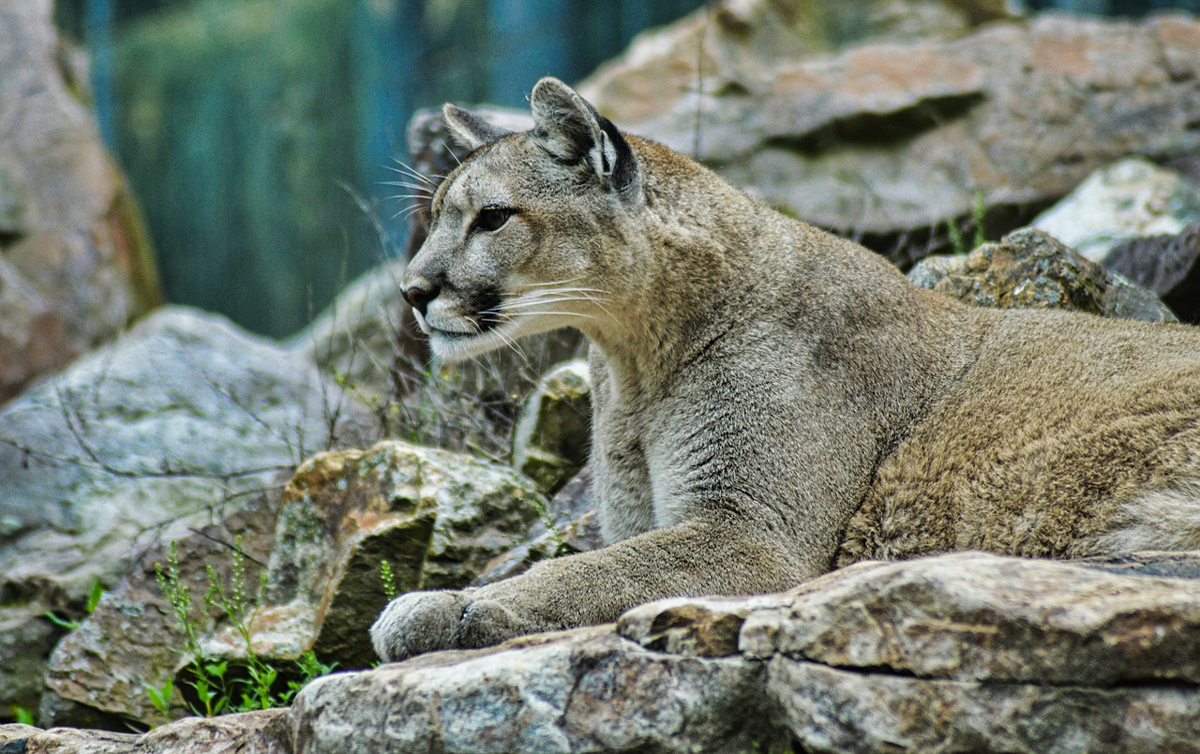
What should you do if you encounter a cougar?
By Terry Messmer
Utah is cougar country. The cougar, also known as the mountain lion, puma, catamount, screamer, or panther, can be easily recognized by its tawny color, white muzzle, and long tail. Cougars live all across Utah, from the high Uinta Mountains to the dry southern deserts.
Although, cougars typically prefer pinyon-juniper and pine-oak brush areas where there are cliffs, ledges, trees, and brush to use for cover, there have been more reports of people encountering cougars in areas where they have not seen them before. The main prey of cougars is deer, so they may be found wherever deer are. Because urban areas in Utah are also inhabited by mule deer year round, more cougar sightings have been reported in these areas in recent years.
An increased number of cougar sightings have also been reported where there are urban wildland interfaces — areas of transition between unoccupied land and human development.
The increased cougar sightings may be the result of more people recreating outdoors, coupled with seasonal movements and dispersal of the juvenile animals. It is less likely that there are as many cougars in Utah as some might think.
Cougars are solitary animals that usually hunt alone at dawn and dusk. Be especially watchful during these times, because this is when humans are most likely to encounter them.
According to wildawareutah.org, there are things you can do to reduce the risk of a cougar encounter:
—Remove wildlife attractants from your property, including pet food, water sources, bird feeders, and fallen fruit. If your property and landscaping are attractive to deer and other wildlife, cougars may follow the wildlife to your property while searching for prey.
—Do not leave children outside unattended, especially at dawn and dusk.
—As a deterrent, install outside and motion-sensitive lighting around your property.
—Bring pets and livestock inside at night, or secure them in a barn or kennel with a roof.
—Provide secure shelter for hobby farm animals such as poultry, rabbits, and goats. Ask your neighbors to also follow these tips.
—Do not hike or jog alone. Travel in groups and keep everyone together, especially children and dogs.
—Make noise while hiking to alert cougars of your presence.
—Leave the area if you find a dead animal, especially deer or elk, as it could be a cougar kill, and the cougar may return and defend its food.
—If you are camping, keep your site clean. Store food and garbage in an odor-free, locked container, or hang it between two trees where cougars (and bears) cannot get to it.
Cougars are generally shy and typically avoid people and urban areas; however, if you do encounter a cougar, remember these tips.
—Stop immediately. Never run from a cougar, as it may elicit cougar-prey chase behavior. Cougars tend to either pounce on their prey or chase it down. Don’t create the impression that you are prey.
—Do not approach the cougar. Leave enough space so it can retreat. If the animal feels threatened and cannot escape, your risk of being attacked increases.
—Maintain eye contact.
—Pick up children and pets or keep them close to you.
—Stand up tall, and do not crouch or squat.
—Make yourself look bigger by raising and waving your arms or jacket above your head.
—Talk firmly in a loud voice, back away slowly and leave the area.
—Fight back if you are attacked! Protect your head and neck.
—If you are aggressive enough, the cougar will likely flee.
The cougar is a protected wildlife species in Utah. There is an annual statewide limited-entry hunting season on cougars in Utah. These hunts are managed by the Utah Division of Wildlife Resources to help regulate populations and reduce conflicts.
If you encounter a cougar or other aggressive wildlife, it’s very important to alert the Utah Division of Wildlife Resources office near you. If the encounter or sighting occurs after hours or on the weekend, contact your local police department or county sheriff’s office and they can contact a conservation officer to handle the situation.
For further information about cougars, visit wildawareutah.org.
Terry Messmer is a Utah State University Extension wildlife specialist.
Articles related to “What should you do if you encounter a cougar?”
Close encounters of the wildlife kind: Personal protection strategies
How to prevent wildlife attacks: Let common sense overrule curiosity



